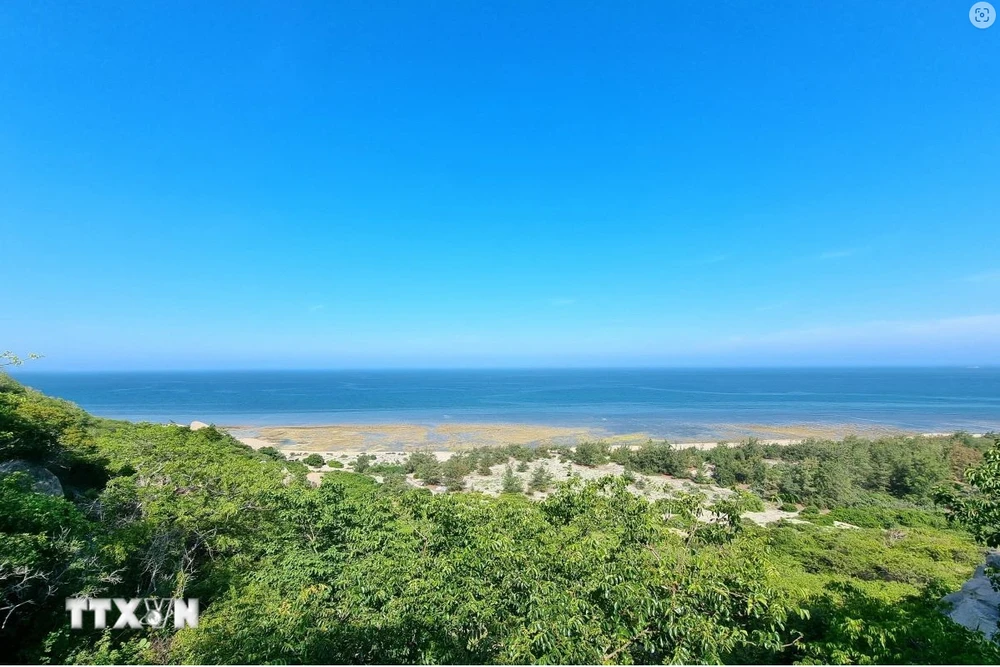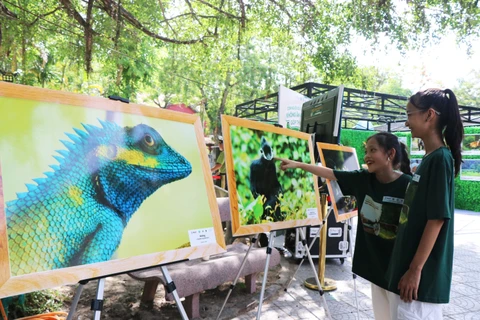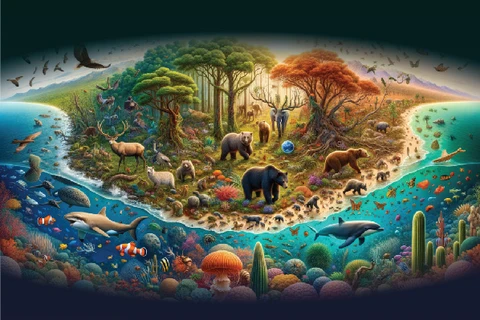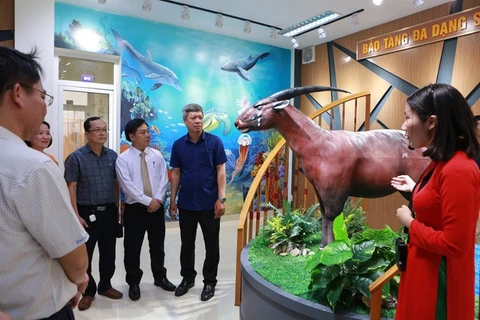
Hanoi (VNA) – Vietnam ranks 14th in the world and among the top three Southeast Asian countries in terms of the levels of biodiversity, according to the 2024 World Population Review rankings.
The country, however, is facing rapid ecosystem degradation due to pressures from socio-economic development activities, population growth, unsustainable land use practices, natural resource exploitation, environmental pollution and the impacts of global climate change.
Therefore, to ensure sufficient resources for sustainable development, long-term connections between domestic and international organisations are necessary. The mobilisation of financial resources in both public and private economic sectors is an important factor contributing to environmental preservation.

Speaking at a seminar themed “Fostering a Biodiverse Economy in Vietnam” held in Hanoi on November 17, Associate Prof. Dr. Nguyen Dinh Tho, Director of the Institute of Strategy and Policy on Natural Resources and Environment (ISPONRE), said that Vietnam is one of the 12 biodiversity centres in the world with valuable and rare genetic resources.

Over the years, biodiversity has made significant contributions to the national economy, serving as a foundation for ensuring food security, maintaining genetic resources for livestock and crops, and providing materials for construction, fuel, and medicinal resources. It is also a cornerstone for the development of agriculture, forestry, fishery, and tourism.
However, like many other countries, Vietnam is experiencing increasing biodiversity degradation due to infrastructure development, invasive alien species, overexploitation of resources, environmental pollution, and pressure from rapid population growth.
In response to the situation, Vietnam has participated in international conventions on biodiversity conservation while enforcing policies and laws to protect biodiversity, Tho said.
He emphasised the need to develop innovative financial mechanisms to support the conservation of natural ecosystems.
Recently, at the 26th United Nations Climate Change Conference (COP26) in Glasgow, the UK, Prime Minister Pham Minh Chinh reiterated that responding to climate change and restoring nature must become the highest priority in all development decisions.
The commitment is reflected in Decision No. 149/QD-TTg, which approves the National Strategy on Biodiversity to 2050, focusing on developing innovative financial mechanisms to aid conservation efforts and promote sustainable economic growth.
With the proactive participation in international conventions and the efforts of various ministries, sectors, and localities, Vietnam is gradually preventing the decline of biodiversity and working towards effective nature conservation and ecosystem restoration at the local level.
However, Tho also noted that, to promote sustainable economic development in biodiversity, it is crucial to maintain connectivity and mobilise resources.
Collaboration in capital mobilisation

British Deputy Ambassador to Vietnam Marcus Winsley said that the seminar, which was jointly organised by ISPONRE, the British Embassy, the University of Exeter, and Dragon Capital Vietnam, was an occasion to show the commitment in addressing global challenges like climate change and deterioration of natural habitats, as well as strengthening the long-term partnership.
Professor Lisa Roberts, President and Vice-Chancellor of the University of Exeter, stated that the seminar was a testament to international cooperation in addressing global challenges like natural resource degradation.
By combining the University of Exeter’s strength in biodiversity economy with its partners in Vietnam, it is expected to find solutions for the Southeast Asian country to effectively protect the environment while driving economic growth.
Other participants at the seminar also discussed the development of programmes to support and optimise resources mobilised for biodiversity conservation in Vietnam in the coming time.
Dominic Scriven, Chairman of Dragon Capital Vietnam, said that the private economic sector has played an important role in contributing to protecting Vietnam's biodiversity.
Dragon Capital and ISPONRE are cooperating in studying and proposing financial mechanisms in line with the Vietnamese government's orientations and the country's overall goals in biodiversity conservation./.






















